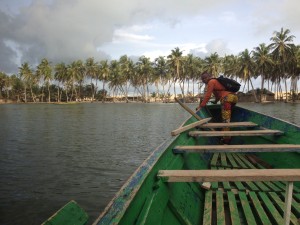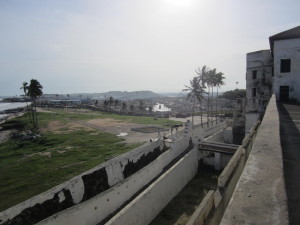Until 1876, Cape Coast was the capital of the then Gold Coast (now Ghana). The city has great historical significance in not only Ghana, but also West Africa and the rest of the world since Cape Coast was the ‘gate of no return’ for thousands of captured Africans who were soon to become slaves. Today, Cape Coast’s significance cannot be denied as it (and neighboring El-mina Castle) are both UNESCO World Heritage Sites.

Cape Coast is a growing tourist town with its rich history and monuments. Cape Coast (about 3 hours west of Accra, the capital) is now a city of over 160,000 people and is an important fishing port for Ghana. The city is recognized as the capital of modern education in Ghana with a university, polytechnic (vocational school), teacher training college, nursing training college,and eleven senior secondary schools giving it one of the highest concentrations of educational institutions in all of West Africa.

The University of Cape Coast is about 3 miles west of the city center but there is regular transit back and forth. UCC is located on a high overlooking the Gulf of Guinea and operates two campuses. The Southern Campus is located at the old site and the Northern Campus is located at the new site. Transit between the two sites is quick and easy and students can walk easily from housing to their classes.
Local hawkers sell cheap, delicious fresh fruit and any other type of thing you could possibly need. Many Ghanaians shop from their cars since the street hawkers (aka sellers) will walk straight to you when traffic has stopped. This is easy, cheap, and a wonderful aspect of Ghanaian culture.
